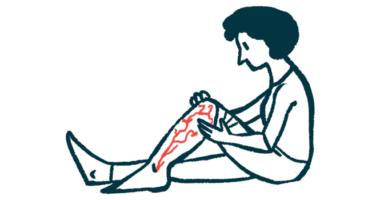Embracing Our Past Strengthens Us on Our Chronic Illness Journey

Lunar New Year celebrations, which began on Feb. 1, last for 15 days. As I write this on the eve of that date, I am busy cooking a selection of traditional dishes for the family to enjoy.
Because we live in New Zealand, a Western country far away from family members in Malaysia, my husband, Aubrey, and I try to cultivate an atmosphere of celebration with get-togethers with friends of the same culture. Aubrey and I believe that the customs we both experienced while growing up in our home country are vitally important for our children to experience so that they never lose sight of the rich tapestry of values, knowledge, and way of life of the place we came from.
When I was younger, preserving traditional values wasn’t a priority of mine, and I often confused tradition with superstition. Now in my 50s, I view tradition as a way of life that frames relationships.
My husband has a disease called hereditary ATTR amyloidosis. He was diagnosed in 2013 after a period of declining health. Since then, we have embarked on a challenging journey of self-discovery, with both of us digging deep to find strength and reasons to stay positive.
I believe tradition and our life practices have played an important role in our approach to caregiving and disease management thus far. Our attitudes and beliefs, both individually and as a couple, have helped us to manage the various situations we’ve encountered.
Both Aubrey and I are descended from courageous ancestors who faced extreme hardships in search of a more promising future for their children.
In the late 1930s, Aubrey’s paternal grandparents traveled across rough seas from Sri Lanka to work in the plantations of Malaya. Around the same time, his maternal grandmother traveled on a sailboat with her twin daughters to flee oppression in China, landing in Singapore. Both sides of his family understood the importance of surviving and finding an environment in which the next generation could thrive.
My grandfather, on the other hand, was among the Japanese occupiers of Malaya in the 1940s. During that period, he had two sons with my grandmother, who came from what was then called Siam (now Thailand), along with her five siblings. My maternal grandparents came to Malaysia individually from China to escape severe economic, political, and social strife in the early 1930s.

From left, Jaime Christmas and her friend Irene Ng wear the traditional Chinese blouse known as “cheongsam” to commemorate the Lunar New Year on Feb. 1. (Photo by Aubrey Christmas)
Looking back, Aubrey and I can’t help but feel indebted to this brave group of people who tried so hard to leave a positive legacy for future generations. We think it’s critical to preserve our history, heritage, and culture, especially now that we live in yet another country.
With Aubrey’s illness and the threat it poses to his body, incorporating the qualities of tenacity and perseverance into our daily lives is so important. We both come from a tenacious, resilient, optimistic, and goal-oriented group of people, and this is evident in how we choose to respond to this illness.
So, as we welcome the year of the tiger, Aubrey and I declare our boldness in facing the days ahead. We are thankful for this path that our forefathers carved out for us. And while our journey is difficult, we know that things will work out in the end.
Note: FAP News Today is strictly a news and information website about the disease. It does not provide medical advice, diagnosis, or treatment. This content is not intended to be a substitute for professional medical advice, diagnosis, or treatment. Always seek the advice of your physician or other qualified health provider with any questions you may have regarding a medical condition. Never disregard professional medical advice or delay in seeking it because of something you have read on this website. The opinions expressed in this column are not those of FAP News Today or its parent company, BioNews, and are intended to spark discussion about issues pertaining to familial amyloid polyneuropathy.








Comments